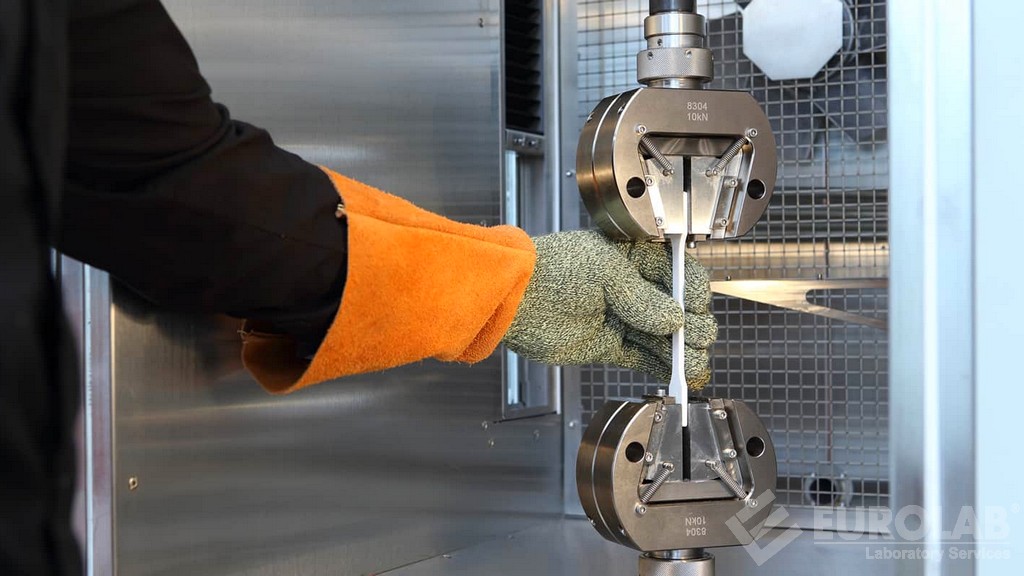Biocide Activity Test
The Biocide Activity Test is a critical component in the quality assurance and compliance processes of oil and gas production chemical and additive manufacturers. This test evaluates the efficacy of biocides, which are chemicals used to eliminate or suppress microbial growth within the complex environment of an oil and gas facility.
Biocides play a pivotal role in maintaining the integrity of equipment, preventing corrosion, and ensuring operational efficiency. In the context of production chemicals and additives, these tests are essential for identifying biocides that can effectively inhibit bacterial, fungal, and algal growth without compromising the quality or performance of other chemical components. The test is conducted under controlled conditions to simulate real-world environments encountered in oilfield operations.
The test involves exposing a known concentration of biocide to a specimen representing the intended application environment. This could be water samples from different stages of production, such as seawater, produced water, or fresh water reservoirs. The specimens are then incubated for a specified duration under controlled temperature and pH conditions to observe microbial growth.
After the incubation period, the biocide's effectiveness is determined by comparing the observed microbial growth with that in control samples where no biocide was present. Acceptance criteria typically include a reduction of at least 90% in microbial count after exposure to the biocide. This stringent requirement ensures that only efficacious biocides are approved for use, thereby enhancing the safety and reliability of oil and gas production processes.
The test is conducted using advanced laboratory equipment such as incubators, pH meters, and microbiological analysis tools. The specimens are prepared in accordance with industry standards such as ASTM D1298 and ISO 16560-3, which provide detailed protocols for biocide testing.
| Industry Applications |
|---|
| The Biocide Activity Test is widely used in the following sectors: |
| - Offshore Oil and Gas Platforms |
| - Onshore Drilling Sites |
| - Refineries |
| - Pipelines and Transportation Systems |
The test's importance extends beyond compliance; it also supports continuous improvement in the development of new biocides. By identifying the most effective formulations, manufacturers can enhance product performance while minimizing environmental impact.
Understanding the intricacies of this test is crucial for quality managers and compliance officers responsible for ensuring that all chemical additives meet stringent safety and efficacy standards. R&D engineers benefit from detailed knowledge of these tests to innovate and refine biocide formulations. Procurement teams also play a vital role in selecting suppliers who can provide reliable, compliant biocides.
In conclusion, the Biocide Activity Test is an indispensable tool in the oil and gas industry, ensuring that production chemicals and additives not only meet regulatory requirements but also contribute to the overall safety and efficiency of operations.
Why It Matters
The effectiveness of biocides directly impacts the operational efficiency and longevity of equipment in the oil and gas sector. Poorly performing biocides can lead to increased microbial contamination, which may result in reduced production rates, higher maintenance costs, and potential safety hazards. By conducting thorough Biocide Activity Tests, manufacturers ensure that their products are not only effective but also environmentally responsible.
The test results provide valuable insights into the performance of biocides under various environmental conditions, allowing for informed decisions regarding product selection and application. This enhances operational reliability and reduces the risk of equipment failure due to microbial corrosion or biofilm formation.
Moreover, compliance with regulatory standards such as API RP 13F-2 and ISO 16560-3 is essential for maintaining a good reputation in the industry. These standards not only ensure that products meet quality benchmarks but also facilitate smoother interactions with regulators and customers.
In summary, the Biocide Activity Test is more than just a compliance requirement; it is an integral part of ensuring safe, efficient, and sustainable operations in the oil and gas sector.
Industry Applications
- Offshore Oil and Gas Platforms: Biocides are crucial for preventing microbial fouling on subsea equipment and pipelines.
- Onshore Drilling Sites: They help in maintaining clean drilling fluids to enhance performance and safety.
- Refineries: Biocides play a key role in controlling microbial growth in process water systems, which is essential for refining processes.
- Pipelines and Transportation Systems: Their use ensures the integrity of transport routes by inhibiting biofilm formation.
| Industry Applications |
|---|
| The Biocide Activity Test is widely used in the following sectors: |
| - Offshore Oil and Gas Platforms |
| - Onshore Drilling Sites |
| - Refineries |
| - Pipelines and Transportation Systems |
The test's results are particularly significant in these sectors because they directly influence the reliability, efficiency, and safety of operations. By ensuring that biocides meet stringent efficacy standards, these tests contribute to the overall sustainability of oil and gas production.
Competitive Advantage and Market Impact
The Biocide Activity Test is a key differentiator in the competitive landscape of chemical suppliers within the oil and gas sector. Manufacturers who consistently deliver biocides that meet or exceed industry standards gain significant market advantage. These products not only ensure operational reliability but also contribute to environmental stewardship.
By offering reliable, compliant biocides through rigorous testing, companies can build strong relationships with key stakeholders such as operators, regulators, and customers. This enhances brand reputation and fosters long-term partnerships. Moreover, the ability to innovate and refine formulations based on test results positions these suppliers at the forefront of industry advancements.
Compliance with international standards further solidifies a company's position in the market. For instance, adherence to ISO 16560-3 ensures that products are recognized globally, increasing their appeal to an international customer base. This not only expands market reach but also strengthens competitive standing against competitors who may not meet such stringent criteria.
In conclusion, the Biocide Activity Test plays a pivotal role in shaping a company's competitive advantage and market impact within the oil and gas sector. By ensuring product efficacy and compliance with relevant standards, companies can secure a robust position in this dynamic industry.





